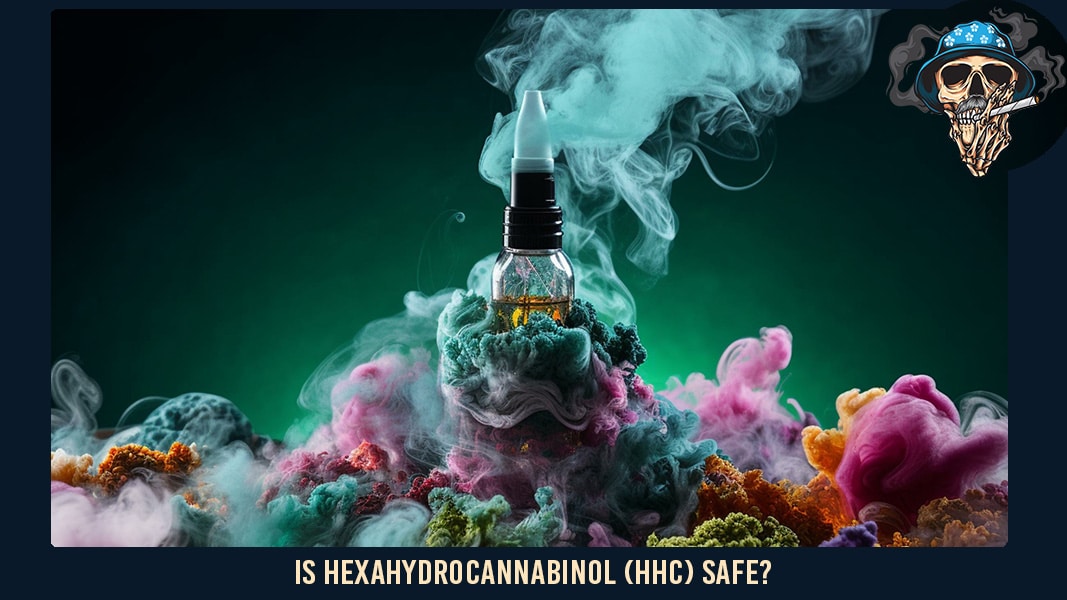The Nuanced Effects of Delta 8 and HHC
Exploring Delta 8 and HHC: A New Frontier for Experienced Cannabis Users
For the seasoned cannabis enthusiast, the quest for new experiences and substances is a never-ending adventure. The emergence of novel cannabinoids like Delta 8 THC and HHC (Hexahydrocannabinol) presents a thrilling opportunity to explore different effects and potential benefits. HHC, in particular, stands out as a distinctive choice for those seeking to venture beyond the traditional effects of Delta 9 THC. Known for its subtler psychoactive properties, HHC offers a unique high that is often associated with reduced anxiety and paranoia, making it particularly appealing to users who desire the therapeutic effects of cannabinoids without the intense highs that can sometimes lead to discomfort.
Hexahydrocannabinol is gaining attention for its milder effects and chemical stability, which could translate into longer shelf life and more consistent potency over time. This stability comes from the hydrogenation process, similar to how vegetable oil is transformed into margarine. This process makes HHC a robust compound and potentially more reliable in terms of how it interacts with the body’s endocannabinoid system. The nuanced effects and the innovative production method position HHC as an intriguing substance for cannabis connoisseurs looking to expand their cannabinoid repertoire and experience a different kind of high that aligns more closely with their wellness and lifestyle preferences.
Delta 8 THC: A Milder, More Manageable High
Delta 8 THC has gained attention for offering a “lighter” version of the typical high associated with Delta 9 THC. This cannabinoid is chemically similar to Delta 9 THC, the main psychoactive component in cannabis, but it features some critical differences that impact how it interacts with the brain’s endocannabinoid receptors. Delta 8 THC tends to produce a more relaxed, clear-headed high without the intensity that can sometimes lead to anxiety or paranoia in sensitive users.
Benefits of Delta 8 THC: A Closer Look
Delta 8 THC is growing in popularity not only for its milder high compared to its more famous cousin, Delta 9 THC, but also for its array of therapeutic benefits that appeal to both recreational users and medical marijuana patients.
Reduced Psychoactivity
One of the most appreciated aspects of Delta 8 THC is its reduced psychoactivity. It’s an ideal choice for those who might find the effects of Delta 9 THC too overwhelming or for individuals who need to maintain functionality and clarity after consumption. This milder effect makes Delta 8 THC a great option for daytime use when users need to manage symptoms but also stay alert and engaged in their daily activities.
Pain Relief and Anti-Inflammatory Properties
Similar to Delta 9 THC, Delta 8 THC has demonstrated significant potential in pain management and anti-inflammatory effects. This makes it a valuable alternative for individuals dealing with chronic pain, arthritis, and other inflammatory conditions. By binding to the cannabinoid receptors in the body, Delta 8 THC can help to modulate pain perception and reduce inflammation, offering relief without the high levels of intoxication that can impair day-to-day activities.
Appetite Stimulation
Just like traditional THC, Delta 8 THC has been observed to stimulate appetite. This is particularly beneficial for people experiencing appetite loss associated with medical treatments such as chemotherapy or other conditions that decrease hunger. Delta 8’s ability to help increase food intake can be a crucial factor in patient recovery and general well-being, providing necessary energy and nutrition that might be lacking due to a reduced desire to eat.
These varied benefits highlight Delta 8 THC not just as a recreational substance but as a potentially impactful therapeutic agent that could offer relief and improve quality of life for many individuals. With ongoing research and increased interest, the full scope of Delta 8 THC’s effects and benefits is likely to become better understood, ensuring that users can make informed decisions about incorporating this cannabinoid into their health regimen.
HHC: The New Cannabinoid on the Block
HHC is less well-known than Delta 8 but is starting to make waves for its unique properties. HHC is a hydrogenated form of THC, created by adding hydrogen molecules to Delta 9 THC, altering its chemical structure to make it more stable and potentially less potent. This process, known as hydrogenation, is similar to how margarine is made from vegetable oil.
Advantages of HHC: A Comprehensive Overview
Hexahydrocannabinol (HHC) presents several unique advantages that make it an appealing alternative within the cannabinoid market, particularly for those seeking a different experience than what Delta 9 THC offers.
Longevity and Stability
One of the standout features of HHC is its enhanced longevity and stability, thanks to the hydrogenation process it undergoes. This process involves adding hydrogen molecules to the cannabinoid’s structure, stabilizing the compound and significantly extending its shelf life. This makes HHC an ideal choice for long-term storage, as it is less susceptible to degradation due to oxidation and UV light compared to other cannabinoids. This stability is crucial for both manufacturers and consumers who need products that maintain their potency and efficacy over time, ensuring a consistent experience with each use.
Mild Psychoactive Effects
HHC is noted for providing a high that is somewhat milder than that of traditional THC. Early user reports and anecdotal evidence suggest that HHC offers a balanced psychoactive experience, which can be particularly beneficial for those who might be sensitive to the more intense effects of Delta 9 THC. This reduced intensity means that HHC may carry a lower risk of inducing anxiety and paranoia, making it a more comfortable option for users seeking the therapeutic benefits of cannabinoids without the overwhelming side effects.
Legal Ambiguity
Currently, HHC exists in a legal gray area, largely because it is not explicitly listed under many existing cannabis regulations. This ambiguity provides an opportunity for it to be sold in regions where Delta 9 THC is heavily regulated or banned. However, this legal status can vary significantly by jurisdiction, and it is important for consumers to be aware of their local laws to navigate this landscape safely. The legal ambiguity of HHC may offer accessibility advantages, but it also requires consumers and retailers to stay informed about potential legal changes that could impact the availability and legality of HHC products.
These advantages highlight HHC as a promising cannabinoid for those exploring beyond the traditional effects of cannabis. Its stability, milder psychoactive properties, and current legal status make HHC an intriguing option for both recreational and medicinal users, offering a diverse range of experiences tailored to meet varying needs and preferences. As research continues and regulatory frameworks evolve, the role of HHC in the cannabis market is likely to become more defined, potentially expanding its acceptance and usage worldwide.
User Experiences and Legal Considerations
Experienced cannabis users who experiment with Delta 8 and HHC often report a nuanced experience that allows them to enjoy the benefits of THC without some of the negative side effects associated with high doses of Delta 9. However, it’s important to note that the effects can vary widely depending on the individual, the dosage, and the method of consumption.
Legal Landscape of Delta 8 THC and HHC
The legal status of cannabinoids like Delta 8 THC and HHC is complex and constantly evolving, reflecting the dynamic nature of cannabis laws across the United States.
Delta 8 THC: Navigating Diverse State Laws
Delta 8 THC, while federally legal in the United States when derived from hemp containing less than 0.3% Delta 9 THC, faces varied legal interpretations at the state level. Several states have moved to explicitly ban or restrict the use and sale of Delta 8 THC due to concerns about its psychoactive effects and the lack of regulatory oversight. For instance, states like Alaska, Arizona, Arkansas, Colorado, Delaware, Idaho, Iowa, Mississippi, Montana, Rhode Island, Utah, and Vermont have restrictions or outright bans on Delta 8 THC. This patchwork of regulations makes it essential for users and businesses to stay vigilant and knowledgeable about the specific laws in their respective states to ensure compliance and avoid legal complications.
HHC: A Similar Legal Standing with Unique Challenges
HHC, another hemp-derived cannabinoid, generally shares a similar legal footing to Delta 8 THC in states that have not explicitly legislated against it. However, due to its relatively new presence in the market and less widespread recognition, HHC often flies under the radar, which can pose both an opportunity and a risk for users and sellers. The legal landscape for HHC is also subject to rapid changes as state legislatures and regulatory bodies may update their policies in response to new information or changes in federal guidelines regarding hemp and its derivatives. Therefore, HHC users should make a concerted effort to keep abreast of the latest legal developments in their area to avoid potential legal issues.
The legal environments for Delta 8 THC and HHC are indicative of the broader uncertainties surrounding the regulation of cannabinoids in the U.S. The discrepancy between federal and state laws, along with the ongoing adjustments in state legislatures, requires both consumers and industry participants to remain proactive in educating themselves about the regulations that affect their rights to use, distribute, and possess these substances. As the cannabis industry continues to grow, staying informed and compliant with the current laws is paramount for anyone involved with Delta 8 THC and HHC.
For those experienced cannabis users seeking a different kind of experience or looking to avoid the anxiety sometimes associated with Delta 9 THC, Delta 8 and HHC offer promising alternatives. These cannabinoids provide an opportunity to explore less intense psychoactive effects while still enjoying the therapeutic benefits of cannabis. As always, it’s crucial to source these products from reputable providers to ensure safety and quality, and to keep abreast of the latest legal developments to navigate this shifting landscape responsibly.


